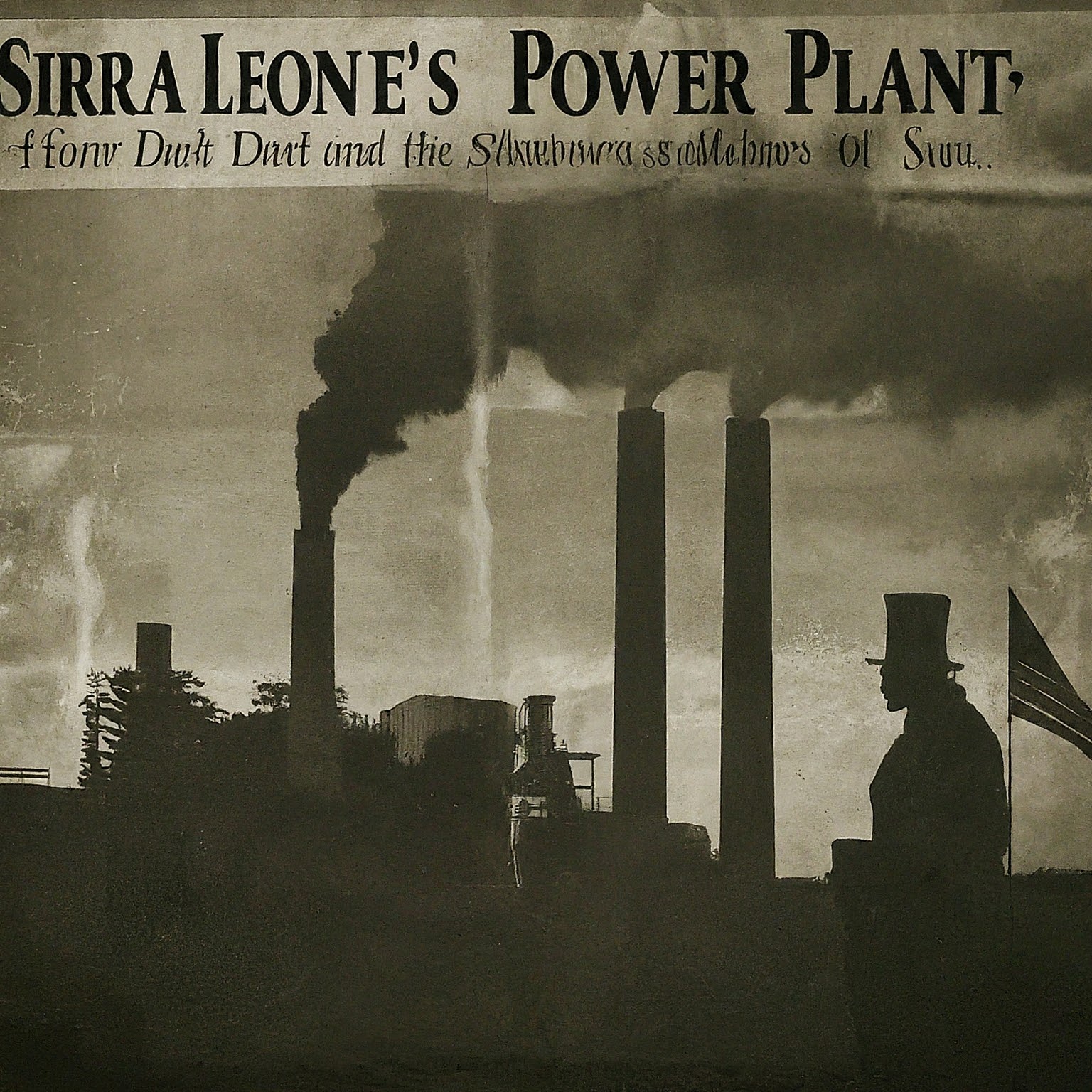Sierra Leone’s Power Plant reveals financial controversies with US, raising questions about sovereignty amid ambitious energy goals.
Is Sierra Leone Trading Sovereignty for Electricity?
On June 18, 2024, President Julius Maada Bio, alongside First Lady Dr. Fatima Maada Bio, inaugurated Sierra Leone’s first gas power generation plant, marking what the administration hailed as a “new era of energy security” . This 150-megawatt marvel is set to transform the nation’s power grid, promising reliable electricity to 900,000 new consumers and catalyzing economic growth throughout the Western Territory .
President Bio lauded the project as a “beacon of hope” and a testament to the government’s commitment to sustainable energy development . However, beneath the celebratory veneer lies a tale of complex financial entanglements and questions about national sovereignty.
US Funds: Benevolent Aid or Hidden Chains?
The project is financed by a hefty US$412 million loan from the U.S. International Development Finance Corporation (DFC). This partnership, lacking in transparency, awarded the Western Area Power Generation Project to Milele Energy and TCQ Power Limited without a public bidding process . Critics, such as the Africanist Press, question the legitimacy of this debt, arguing that it imposes a heavy financial burden on Sierra Leone under dubious circumstances .
Adding another layer to the financial puzzle, the U.S. Millennium Challenge Corporation (MCC) announced a separate US$480 million fund for Sierra Leone’s energy sector. This juxtaposition of debt and aid raises an eyebrow: Are these funds part of a coherent strategy, or do they represent conflicting approaches to the same issue?
Transparency on Trial
The Africanist Press, a stalwart defender of media freedom and transparency, has amplified these concerns. It points to a lack of clarity regarding the terms and conditions of the DFC loan and questions the overall integrity of the process .
Chernoh Alpha M. Bah, a prominent voice from the Africanist Press, underscores the irony and opacity of the situation: “How can US agencies, which have imposed a $412 million debt through non-transparent means, simultaneously claim to offer $480 million in aid for the same sector?” . This contradiction demands scrutiny and transparency from both the Sierra Leonean government and its American counterparts.
A Sovereign Debt?
The symbolism of the Sierra Leonean and U.S. flags side by side on official government documentation underscores the extent of American influence in this venture. Such imagery fuels the debate about whether Sierra Leone is trading its sovereignty for short-term gains in energy infrastructure .
A Call for Accountability
As President Bio champions the project as a cornerstone of Sierra Leone’s energy future, it is imperative that citizens demand clarity and accountability. The nation’s energy ambitions should not come at the cost of financial independence or transparency. The call to action is clear: Sierra Leoneans must ask the right questions and hold their leaders accountable to ensure that progress does not come at the price of sovereignty.
Conclusion
The journey towards a brighter energy future for Sierra Leone is fraught with financial and ethical questions. As the nation navigates this complex terrain, it is essential to balance ambition with transparency, ensuring that the lights of progress do not cast shadows of debt and dependency.
References:
